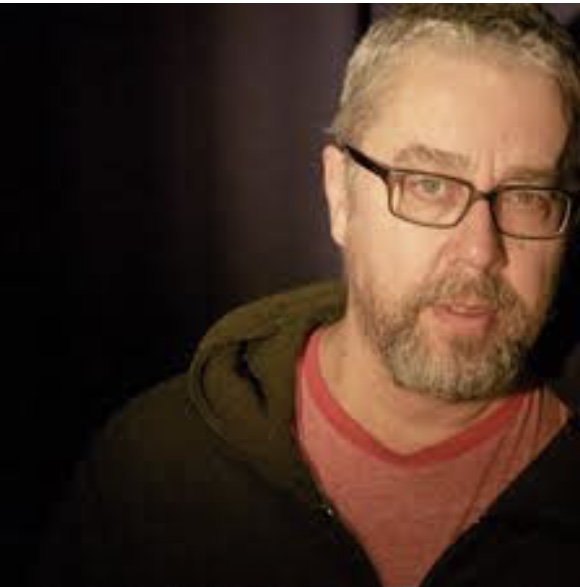World Party is Karl Wallinger; Karl Wallinger is World Party. Musical associates have come and gone, helping the Welsh-born multi-instrumentalist bring his creative ideas to life, but World Party has always been the product of his musical vision.
A list of Karl Wallinger’s early musical influences won’t turn up many surprising names. But what the Prestatyn, Wales-born musician did with those influences resulted in something unique and special. Strong echoes of The Beatles, Bob Dylan, Van Morrison and Sly Stone – to name a few – can be found in the music of World Party, but the group/project has always sported a sound and sensibility that sets it apart.
After working as musical director for the West End production of The Rocky Horror Show, Karl Wallinger joined The Waterboys in 1983. Band leader Mike Scott had recruited him as a keyboardist, but by the time of sessions for 1985’s This is the Sea, Wallinger took on a far more important role in the group, playing multiple instruments, singing, and developing arrangements and orchestrations. He received co-credit for writing the album’s opening track, “Don’t Bang the Drum,” but his contributions went far beyond that, including a major (yet uncredited) role in the writing of what would become The Waterboys’ best-known song, “The Whole of the Moon.” Frustrated, Wallinger left the group and started his own project, World Party.
Its title a statement of liberation and purpose, 1987’s Private Revolution featured Wallinger doing nearly everything: singing, writing, producing and playing most instruments. While a cover of Bob Dylan’s “All I Really Want to Do” was a nod toward one of his heroes, the album as a whole is an expression of the artistic vision of its creator. The rousing single “Ship of Fools” served notice that World Party had arrived; it charted in several countries and was the subject of a popular MTV video. Characterizing the record as “pure pop for party people,” Rolling Stone called Private Revolution “a funky Sixties-influenced bit of consciousness raising.” But Wallinger was just getting started.
1990’s Goodbye Jumbo represented a great leap forward. Building on the creative success of World Party’s debut, Wallinger’s second album featured a dozen songs, every one of which sounded like a potential hit single. The record’s standout track, “Put the Message in the Box” distilled all of World Party’s myriad virtues into four minutes of bliss.
Setting a pattern that would become a fixture of World Party releases, the album was greeted by near-unanimous critical acclaim. Rolling Stone praised Wallinger’s “ambition as broad as the emotional range of the music, vital to overpowering resistance.” The Guardian described the album as a collection of “cerebral, erudite pop essays drenched in gorgeously winning Beatles-esque melodies,” and called World Party “a band presciently ahead of their time.” A decade later, Q Magazine – who had named Goodbye Jumbo its 1990 Album of the Year – ranked the LP #94 on its list of Greatest British Albums Ever.
Released in 1993, Bang! was Wallinger’s third album as World Party. Seamlessly combining funk, psychedelia, rock, soul and chiming ear-candy pop, it was another critical success. The album spawned three singles including the fan favorite “Is it Like Today?”
Egyptology, World Party’s fourth album, was released in 1997. Perhaps Wallinger’s most fully-realized effort, it showcased Wallinger’s seemingly limitless knack for crafting finely-wrought, timeless pop songs full of hooks and heartfelt lyrics. The record’s breakout tunes included the singles “Beautiful Dream” and the ballad “She’s the One.” The latter took on a life of its own when Robbie Williams scored a worldwide hit with his nearly note-for-note remake in 1998.
The 2000 World Party album, Dumbing Up was Wallinger’s first release after leaving Chrysalis Records. While featuring some overt pastiches of some of Wallinger’s influences – in particular The Beatles on “Another 1000 Years” – it successfully worked hip-hop textures into the single “Here Comes the Future.” In 2006 a revised version of the album was released.
Wallinger suffered a debilitating aneurysm shortly after the release of Dumbing Up; he eventually worked his way back to health, returning to music five years later. That return was highlighted by a set at the 2006 Bonnaroo Festival. The next year, he compiled a World Party best-of, Best in Show. In 2008 Wallinger was featured (with Peter Gabriel, Tim Finn, Jah Wobble, Sinéad O’Connor and many others) as part of the project/album Big Blue Ball.
The massive five-disc Arkeology appeared in 2012, featuring a staggering 70 previously-unreleased tracks from throughout World Party’s history; the release underscored Wallinger’s prolific and productive nature. And World Party has remained busy ever since. For a headlining Royal Albert Hall gig in 2012, Wallinger took the opportunity to survey World Party’s deep catalog of hits, fan favorites and little-heard rarities. World Party toured extensively throughout the U.S. in 2014-15.
This flurry of World Party activity since 2021, with vinyl reissues of Private Revolution and Bang!, an expanded Dumbing Up and Goodbye Jumbo.Egyptology is scheduled for Oct 28, 2022 Meanwhile, with his home and studio now moved from London to Hastings, Karl Wallinger is at work recording a new album of World Party soon-to-be-classics.

